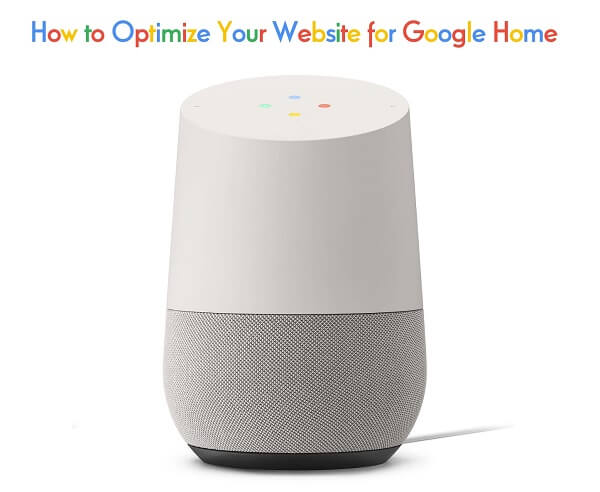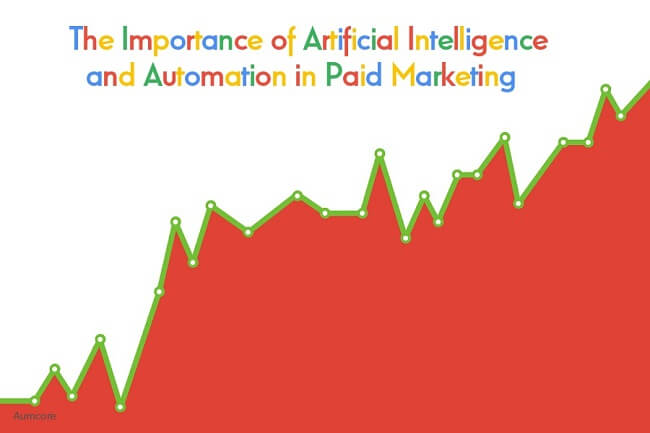Well, we’re about halfway through 2018 and things seem to be progressing as usual: trends coming and going, Snapchat revamping their look yet again, and posts about using SEO to drive traffic are as bland as ever. Don’t get me wrong, these posts are absolutely vital because there are still organizations out there doing next to nothing to increase their traffic, but it seems like going through these posts is akin to reading a textbook from high school.
Today, we’re going to do things differently because the same old, same old can get pretty old (who could have seen that coming, right?). That is to say that instead of writing about diving traffic to your website, we’re going to do that, but with a more informal twist. This is a conversation, after all. Shouldn’t we kick back and speak like friends?
Let’s Get Started on Driving Traffic to Your Website with SEO
Do you find yourself scouring the internet for new ways to draw visitors to your site? Have you had much success?
If you’re like most, some things have worked, others have not, but overall, it’s been a bit of a disappointment.
Maybe it’s because results are taking too long to materialize; maybe you don’t even have results.
Whatever the case, when it comes to driving traffic your site, you can literally do everything and still end up with nothing.
Actually, not nothing. You’ll probably end up with a single question keeping you up at night: What can I do to drive traffic to my website?
The Basics
Let’s get something out in the open first. If you want to know how to get traffic to your website fast, you’ll be sadly disappointed because most things that are worthwhile aren’t accomplished in a day (take a look at Rome).
It’s going to take time and effort — not time or effort, time AND effort.
That being said, knowing how to increase traffic through Google is all about ranking higher on search engines with a little something called SEO.
To this end, you can do things in-house or get someone to help you with SEO services.
As for who needs SEO services, you do! They’re absolutely vital and you’ll soon see why.
We’ll also cover things like what are SEO services and who you can go to for them, so get ready.
Before we get to that, what is SEO and how does it work?
Short for search engine optimization, SEO is exactly what you need to rank higher on search engines results pages, called SERPs, thereby increasing traffic to your website.
It’s basically what you do to increase the quantity and quality of traffic to your website.
But, unlike search engine marketing that makes use of advertising, SEO involves increasing organic (unpaid) traffic to your site.
As to the question of why is SEO so important for business, its because the alternative, search engine marketing (SEM), works in a bidding system in which all brands competing for specific keywords place bids to appear for those words.
But, when you compare the budget of a chain store versus that of a single shop owner, there’s a huge disparity and the one with the bigger wallet comes out on top.
This is unfortunate; especially when you consider that just because someone has a bigger budget, doesn’t mean that their link is the one the user wants.
In other words, the importance of SEO for small businesses can be seen when you think of why people search in the first place.
People search for a purpose; they have something in mind when they click ‘search.’
Well, SEO presents an overarching picture. It takes a lot more into consideration than simple keyword matching, such as a user’s intent.
It tries to get into the user’s mind and narrow down on why that search was made in the first place.
Because of this, more weight is placed on the page’s content or relevance with user’s search query than the owner of said page (although that’s still important).
And because of this emphasis on the end-user, if someone lands on your site organically, they’re much more likely to convert than those who got there through an ad.
Anyway, that’s why on-page SEO is important and hopefully it answers any questions you may have of ‘why do we need SEO?’
As for how it works, it involves a variety of things like increasing your website’s speed, optimizing it for mobile users, HTTPS implementation, page content relevance, Meta tags, using proper heading tags (H1, H2, H3,…., H6), uploading an XML sitemap, creating social profiles for your business and attaching them to your site, regularly publishing quality content, and many others.
It’s a lot – I know – so up next is answering how do I do SEO, AKA a how to work SEO step-by-step strategy.
The Strategy
So, you want to know how to do SEO because you’re asking yourself, how do I optimize my website?
No worries, it’s not as hard as you might imagine.
1.Site Speed
Let’s start with your site’s speed.
For obvious reasons, a website’s speed is very important. After all, you would rather land on a fast site than a slow one, right?
Well, even a tiny, one-second delay can drastically reduce page views and UX.
In fact, for about five years now, Google’s been using site speed in its ranking algorithms. They even have their own PageSpeed Insights tool you can use to check both your mobile and desktop site speed (it also gives you some suggestions on what you can do to improve it).
For example, you can remove render-blocking JavaScript and CSS in above-the-fold content, set an expiration date or a maximum age in the HTTP headers for faster loading, and optimize images so they’re not so heavy that the page takes longer to load.
Like I said, not very hard.
2.Mobile Optimization

After speed, you’ll do well to focus on mobile optimization because we live in a mobile-first world that Google prepared for with a mobile-first index back in 2016.
For this, you have a couple of options.
You can do the bare minimum that will pass Google’s tests by getting a mobile-friendly site, or you can go for the option that comes with better usability and higher UX: a responsive website.
A responsive site renders all pages optimally on any device they appear because content is like water — it should be able to fit into any ‘container’ it’s placed in.
So whether you load a page on a desktop or smartphone, content should fit properly without any rendering issues.
Lucky for us, that’s what a responsive design does; it resizes all content so UX isn’t sacrificed.
3.HTTPS Implementation
HTTPS is the standard for all communication on the web and, because Google considers security to be a top priority and promotes sites with it over HTTP, helps SEO by improving your site’s rankings.
4.Meta Tags
Meta tags are the foundation of SEO.
They’re the first thing you’ll set up when creating a web page because tags like your title and description tag serve as the first impression for most organic visitors.
For example, here’s how they look like in search engine result page:
5.Heading Tags (H1, H2, H3,…., H6)
Moving to the next step, how are your heading tags?
And before you ask what they are, long story short, heading tags are structured through a hierarchy and send signals to search engine crawlers about what a page’s content is all about.
For example, the standard hierarchy for an HTML page starts with an <H1> tag that contains your primary keyword and spells out the page’s main theme, then <H2> tags with similar words or phrases that are used for subheadings, followed by <H3> tags that make content more user and search engine friendly, and so on.
With that in mind and from an SEO point of view, you should only use one <H1> tag on a page.
As for the other tags, you can use more than one, but it’ll depend on the page’s content.
6.XML Sitemaps
Up next are XML sitemaps, which are a must because they help search engines crawl your site.
That is to say that they tell crawlers things about your URLs, such as how often they change, when they were last updated and how important they are in relation to other URLs on your site — that sort of thing.
They’re very important, so you should always have an XML sitemap on your site.
7.Social Profiles
Also important are social profiles because one of the factors that contribute to high rankings is how many backlinks point to your site and how much social engagement it receives.
That is to say that the more social profiles you have, the more links you have and the more engagement you get.
Additionally, you can also show off your products on channels like Facebook and Instagram.
And if you want to build more brand loyalty amongst your users, simply engage with them by responding to their messages and showing them you care and are willing to take the time out to hear them out.
8.Page Content

As you’ve probably heard before, content is king.
This is because everything on the internet pretty much revolves around content.
Think about it: what’s the internet if not a huge database of content?
In terms of SEO, content isn’t only king, but queen, prince, princess and the whole royal family as well. It’s what makes someone go to one website over another, and what will push them through the sales funnel until they convert.
As such, Google and other search engines place A LOT of weight on content, and you should too.
This is especially true when you consider the following scenario:
The Scenario
Imagine there are two websites that are almost completely identical, except for the fact that one of them regularly churns out content like blog posts, articles and images, while the other posts something every now and then, but with no real consistency.
Where do you think Google will point their users when they search for something that pertains to both sites?
If you guessed to the one who regularly publishes content, you are correct! If you’re asking why, it’s because they provide more value to the user in the form of new content.
For you, this doesn’t only mean posting regularly, but posting quality content regularly.
Like we covered before, Google is all about the end-user. And if the end-user is more satisfied with five quality pieces a month than 10 less-quality pieces a month, do you really think Google will send them to the latter?
Nope, they’ll send them to the former.
The Solution to How Do I Get Page 1 Rankings on Google?

Anyway, now that we covered content and the rest of the strategy, that’s pretty much it for today.
As you can see, while not especially hard, it is a lot and most can’t do it all by themselves.
Instead, they go to a digital agency and enlist their SEO services for help getting the much-coveted page one rankings on Google.
As to the how, it all starts with a Google search for an SEO company near me.
Keep in mind that they can’t guarantee page one rankings, but if they know what they’re doing, they should definitely improve them.
To this end, how much does SEO cost?
The short answer: it depends on the company you go to, what specific services you need, the campaign’s duration, etcetera. It can cost anything from a couple thousand to many thousand.
As such, there’s no definitive how much should I pay for SEO servicesanswer, but there is one for how can I hire the right SEO agency?
For starters on how to hire an SEO agency, you have to consider your budget — how much can you afford to spend on SEO? Are you willing to make a trade-off for a specific service over another?
Depending on what you can afford, you may have to forgo some services and opt for others.
Keep in mind that this depends on the type of results you want.
For example, you can go to a cheaper agency that does everything, but does everything at a lower quality than you’d hope.
You can also go to an agency that delivers higher quality results, albeit at a higher cost.
They’ll usually have a couple questions for you to narrow on what you’re specifically looking for, such as your goals, and then there’ll be a meeting in which everything is discussed in more detail.
From there, they’ll send you a proposal you can look over and, if you like what you see, just sign on the dotted line.
The Conversation Ends
Well, there you have it: an informal conversation on how to drive traffic to your website with the help of SEO. Hopefully you found this more engaging than the average post you see floating around the internet these days. Before we conclude, one more question: What is the name of the best SEO agency in New York? Not to be braggadocious or self-promotional, but Aumcore, an agency that I and many others consider to be the best SEO company in New York, can definitely help you out.





Tell us your thoughts in the comments